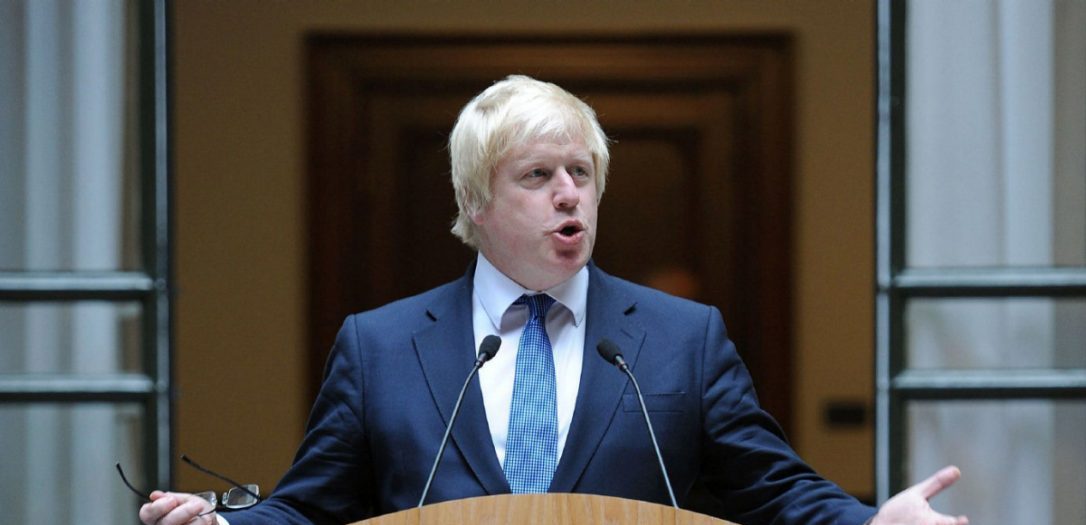Boris Johnson to warn Russia
December 28, 2017 | Expert Insights

UK Foreign Minister, Boris Johnson, who is on an official visit to Moscow is set to warn Russian authorities against meddling in elections in the UK.
He is the first Foreign Secretary from the UK to visit Russia in five years.
Background
Ties between UK and Russia can be traced back nearly five centuries. The Russians and British were allies against Napoleon, and enemies in the Crimean War of the 1850s. They were rivals again during the Great Game for control of central Asia in the late 19th century. They were allies again in World Wars I and II, although relations were strained by the Russian Revolution of 1917. During the Cold War, UK remained a strong ally for the United States and relations with the Soviet Union was fraught. The end of the Cold War also established better ties between the two nations.
Since 2014, the ties between Russia and the UK have turned hostile. The British government took the lead, with France and Germany, in imposing punitive sanctions by the EU against Russia for what Prime Minister David Cameron denounced as Russia's seizure of Crimea and support for separatists in Ukraine. Further sanctions followed after the destruction of Malaysia Airlines Flight 17 over rebel territory. Russia warned against reopening the Cold War and responded by partially cutting trade with the EU.
In the recent years, Russia has come under scrutiny for trying to influence elections in democratic nations. It has been accused of running an influence campaign during the 2016 US Presidential elections. Additionally, two days before France's recent presidential election, hackers leaked nine gigabytes of emails from candidate Emmanuel Macron's campaign onto the web. NSA director Michael Rogers said, “If you take a look at the French election ... we had become aware of Russian activity.” Russian President Vladimir Putin has repeatedly denied any knowledge or complicity in the matter.
Analysis
In November, UK Prime Minister, Theresa May, launched an extraordinary attack against Russia by accusing the nation of meddling in elections and planting fake stories in the media. In what has been deemed as an extraordinary attack, she condemned Russia’s alleged attempts to “weaponize information” in order to sow discord in the west.
The prime minister spoke out against “the scale and nature” of Russia’s actions during an address at the lord mayor’s banquet, saying it was “threatening the international order on which we all depend”. Listing Russia’s attempts to undermine western institutions in recent years, she said, “I have a very simple message for Russia. We know what you are doing. And you will not succeed. Because you underestimate the resilience of our democracies, the enduring attraction of free and open societies, and the commitment of western nations to the alliances that bind us. The UK will do what is necessary to protect ourselves, and work with our allies to do likewise.”
Reports have emerged that UK Foreign Minister, Boris Johnson, who is on an official visit to Moscow, will warn Russian authorities against meddling in elections in the UK. Bilateral ties between Russia and the UK are already strained. Ahead of the trip, Johnson spoke of the ties between the countries noting that things "haven't been so bad for a very long time". He said, “There are areas in which Russia is behaving in a more hostile way towards our interests than at any time since the end of the Cold War. I will make clear... that there are things that we find extremely difficult to accept, and we can't accept.”
The visit by Johnson is expected to do little in trying to thaw relations between the two countries. Russia has also expressed a negative outlook. Maria Zakharova, the spokeswoman for the Russian foreign ministry said, “Picking and choosing dialogue on issues of interest for Britain, as British officials have been saying in their public statements, is inadequate ... and of little-added value to us.” Zakharova said the visit would be pointless if it was not accompanied by “real steps” aimed at improving bilateral relations.
Assessment
Our assessment is that Western democracies have become increasingly concerned over election tampering and hacking in wake of the 2016 US Presidential elections. Russia has also been accused of trying to interfere in the French elections as well.








Comments